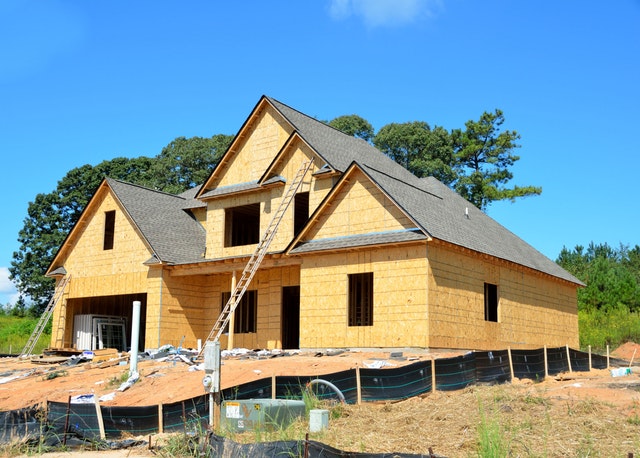 Are you a homeowner who is thinking about selling their current home and making an upgrade to a newer, larger home?
Are you a homeowner who is thinking about selling their current home and making an upgrade to a newer, larger home?
If you’re facing the prospect of having to manage a home purchase and a home sale at the same time you’ll find that there are numerous priorities that are begging for your attention.
In today’s blog post we’ll share a few tips for how to manage a buying and selling transaction simultaneously without being overwhelmed by them.
Start By Getting Your Finances In Order
Before you start the hunt for a new home you’ll want to ensure that your finances are in order and that you’re fully prepared for the many costs that you’ll face.
If you are currently paying off a mortgage on your home, you’ll either need to be approved for a second mortgage to buy your new home or you’ll need to sell your current home first.
You’ll also need to have your down payment lined up for the new home, as well as some money set aside to cover your closing costs. If you plan on selling first and then buying afterwards you may want to have a “transition fund” set aside to cover any rental or other costs if it takes a month or two before you get into a new home.
Selling First Is Typically Far Easier
It’s worth noting that selling your home first and then buying is far easier than buying first and trying to sell. There is a lot of uncertainty in the selling process, especially if you’re in a slower real estate market. Conversely, once you find that perfect new home you can typically get an offer in and close on it quickly if you’re the only bidder.
Begin The Hunt For Your New Home Immediately
Although you may want to wait before you buy your new home, you’ll want to get your house hunt started as soon as you decide to make your move. The more time you give yourself to find a new home, the better the chance you’ll get one in your target community and with the features you’re after.
Leverage Professional Expertise To Help You Manage It All
Trying to manage both selling your current home and buying a new one at the same time will be a significant challenge – one that can be made far easier by working with an experienced real estate agent who knows the ins and outs of the local market. Contact your real estate agent before getting started and they’ll be able to advise you how to best proceed.
 You’ve found the perfect new house or condo, and you are now preparing an offer that you believe the seller will find tempting enough to accept. However, you know that there are going to be thousands of dollars in closing costs that need to be paid before the sale is completed and you become the home’s new owner.
You’ve found the perfect new house or condo, and you are now preparing an offer that you believe the seller will find tempting enough to accept. However, you know that there are going to be thousands of dollars in closing costs that need to be paid before the sale is completed and you become the home’s new owner. With mortgage bubbles and real estate issues still in recent memory, one might feel that their best option is to buy their next home using cash instead of borrowing the necessary funds. In today’s article we’ll explore the pros and cons of paying cash for that next house or condo.
With mortgage bubbles and real estate issues still in recent memory, one might feel that their best option is to buy their next home using cash instead of borrowing the necessary funds. In today’s article we’ll explore the pros and cons of paying cash for that next house or condo. Buying a home is a huge step for people who are ready to make an investment in their future. Getting a great deal on a home is just as important and knowing how much to offer could be confusing. It is important to make sure the home seller is not insulted by the lowball offer and is ready to negotiate to make sure everyone wins.
Buying a home is a huge step for people who are ready to make an investment in their future. Getting a great deal on a home is just as important and knowing how much to offer could be confusing. It is important to make sure the home seller is not insulted by the lowball offer and is ready to negotiate to make sure everyone wins. The purchase agreement is a vitally important document that outlines the provisions, terms and conditions for the transfer of property.
The purchase agreement is a vitally important document that outlines the provisions, terms and conditions for the transfer of property. Whether this is your first big purchase, or your family is moving to a new location or looking for more space, buying a home has its share of ups and downs.
Whether this is your first big purchase, or your family is moving to a new location or looking for more space, buying a home has its share of ups and downs. With the sometimes high cost of buying and maintaining a home and the concept of being sustainable becoming more popular, many people are considering moving to a smaller home to minimize their impact. It’s important, however, to consider what living small is really like before deciding that it’s the right move for you.
With the sometimes high cost of buying and maintaining a home and the concept of being sustainable becoming more popular, many people are considering moving to a smaller home to minimize their impact. It’s important, however, to consider what living small is really like before deciding that it’s the right move for you. Looking for your new home can feel like a daunting task, especially if it’s your first time going through the home buying process. Sometimes, all of the choices may feel overwhelming. You want to make the best decision for yourself and your family.
Looking for your new home can feel like a daunting task, especially if it’s your first time going through the home buying process. Sometimes, all of the choices may feel overwhelming. You want to make the best decision for yourself and your family.  Buying a new home is exciting. Buying a brand new home can be even more so with the realization of being the first owner and possibly being able to choose your own layout and finishes. The prospect of owning new construction is definitely exciting, but it doesn’t come without its own set of questions.
Buying a new home is exciting. Buying a brand new home can be even more so with the realization of being the first owner and possibly being able to choose your own layout and finishes. The prospect of owning new construction is definitely exciting, but it doesn’t come without its own set of questions. For many Americans, retirement age is fast approaching or already here: Baby Boomers account for nearly 75 million individuals in the United States.
For many Americans, retirement age is fast approaching or already here: Baby Boomers account for nearly 75 million individuals in the United States.